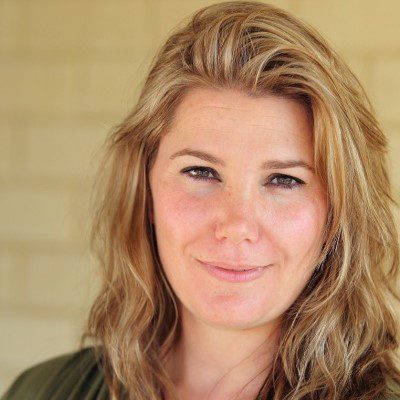As a child, I grew up in an environment where we were encouraged to speak up.
It was an emotional household with three women all traversing the challenges of life in a small space.
There was plenty of door slamming, crying, loud music, bathroom hogging, clothes borrowing and general feisty female behaviour.
We all wore our emotions on our sleeves.
We cried, shouted and stomped our feet when we were unhappy. We also laughed, confided, cuddled, and celebrated the happy times in our lives.
Every night we would sit around the dinner table and have conversation. My mother taught us the art of conversation; how to listen and how to respond.
Whether you were relaying a deep and dark tale or passing on a joke, there was a time and place to listen, engage and then respond. Although we had our problems, we were always encouraged to talk about them no matter how insignificant we thought they might be to someone else. Talking was an everyday part of lives and as ordinary and natural as breathing.
When I finished school, I travelled to Australia and found my new home in Margaret River. It was a far cry from the cobbled and cultured streets of Edinburgh in Scotland, but I instantly fell in love with the calm, almost ethereal character of the town.
Soon after I met my husband, a farmer from Scott River. He is quite the stereotypical farmer; strong, steady, and mostly silent. I settled into my new lifestyle quickly and made new friends where and when I could.
Although Scott River is only 60kms away, it feels like the brink of civilization. A place truly in the middle of nowhere, yet surrounded by towns.
A place where beauty and adversity hold hands on a daily basis. It is a challenging life in Scott River. The families that pioneered the land hail from strong and resilient stock. They are some of the most genuine, salt of the earth people that you could ever meet.
I would not characterize most of them as chatterboxes, but they could definitely hold a good yarn at a social gathering. Most of those chats consist of farming updates, tractor comparisons, stock analysis and fertilizer program debriefs.
Over the 15 years that I was a farmer’s wife I experienced a substantial cultural difference between farming and town life.
I witnessed first hand the emotional struggles some families faced year after year, from the constant uncertainties of a farming régime to the stark reality of living in a remote area. Friends don’t just “drop in” on their way home from work for a cuppa or a beer.
Social gatherings are irregular and sometimes you can go months without leaving the farm. Talking about your feelings can be unnatural.
It is in stark contrast to my own upbringing. Despite all the positive discussion around mental health in the media, many rural people still find it hard to talk about their problems. There is still a stigma clouding the first step in something as simple (and apparently as natural) as talking.
I learnt early on as a farmer’s wife that I played an integral role in managing the social side of our lives and that it was vital that we integrated ourselves into society wherever possible.
Although it may appear as just an excuse to have a bit of a party or yet another BBQ, the reality is that social fellowship between people has been an age-old custom for a bloody good reason; to have a conversation and connection with somebody no matter the topic.
Most of the time it is the small gesture of simply listening to a mate that can make a difference.
So next time your farmer friend asks you to their place for a BBQ; go!
And if you are a farmer and need to have a chat with someone, be brave and Open the Gate…to conversation.
– Miriam Avery
MINDFUL Margaret River is an alliance of mental wellbeing professionals, agencies, community members and the AMR Shire to promote health & wellbeing.
MIRIAM AVERY has been an active community member in Margaret River and Scott River for 20 years.
She has seen, firsthand, the struggles that farming families deal with and the difficulty in receiving mental health assistance.
First published in the Augusta Margaret River Mail 5 August 2021





